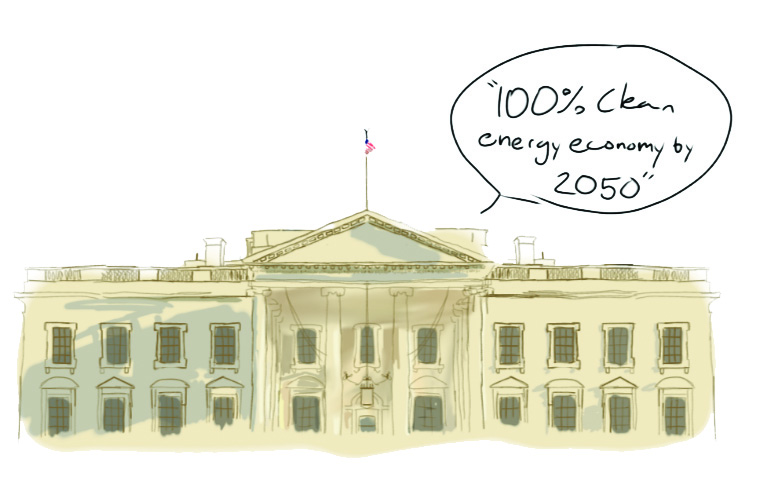Part 1 – GameStop peaks
[Overview]
Over the course of a month, traders on Reddit banded together in order to propel GameStop (GME) stock up to nearly 2000% at its peak. On the other end of this spectrum lies hedge funds, who have lost billions of dollars in the process. The comotion forced brokerage firms to place restrictions on trades, which led to multiple conspiracies of market manipulation on social media and a class-action lawsuit. The flurry of confusing and sometimes conflicting information from various sources led many to wonder what is really going on.
[Scheme setup and origin]
With the advent of purchasing games online, GameStop suffered greatly in terms of sales and the stock price went down along with it. As the GME price declined, many investors sought to make a profit via short selling. Here’s an example of how short selling or “shorting” works:
Alice owns one share of GME worth $15. Bob comes along and thinks the price of GME will go down, so he makes an agreement with Alice; Bob will borrow the share Alice currently owns and will return it back to her after one year. Once the agreement is made and Bob receives the share from Alice, he immediately sells said share for $15. A year passes and the price of a GME share is now $5. Bob buys the $5 share and returns it to Alice. Bob has now made $10 because he sold the share a year before for $15 but returned it by only paying $5.
An important thing to note about shorting is that the process can carry a lot of risk. Say that instead of the price going down to $5 for a share, the price went up to $30. At that point, Bob would lose $15 instead of gaining any money. It doesn’t stop there; in theory, the price could have gone up an infinite amount and Bob could potentially lose an infinite amount of money as there is no ceiling to stop how high prices can skyrocket. Non-shorted stocks don’t pose the same type of risk; if $50 are invested, then it is only possible to lose $50. Due to these risks, it’s rare for people to short stocks. Instead, these dangerous risks are commonly done by hedge funds.
Hedge funds are where people pool their money together and aggressive investment strategies are used in order to maximize returns. Hedge funds typically have requirements on who can join to only have accredited or “qualified” investors. There are a variety of requirements made to attract only accredited investors such as their minimum net worth. Hedge funds tend to have a negative reputation among the general population as they are seen as exorbitantly rich and part of the corrupt establishment.
This relates to the recent GameStop frenzy as hedge funds have begun to aggressively short GME to the point that 140% of GameStop’s public float, which is the number of stocks available to be traded, was shorted. Here is how this is possible:
Think back to the Alice and Bob example from before. This time, when Bob sells the stock borrowed from Alice, this stock is now sold to Carrie. Carrie makes the same deal with another person named Dylan who borrows and sells off the stock. One stock has now been shorted twice.
One user on Reddit, Keith Gill, under the alias DeepF*****gValue, believed that GME was significantly undervalued and a short squeeze could be triggered.
A short squeeze is when a stock sharply jumps as short sellers scramble to cover their positions. In the case of GME where so much of the stock was shorted, if a bit of good news came out and the stock price started to rise, short sellers would try to buy stocks to cover their positions and minimize losses. This would also increase the stock price so other short sellers would try to buy a stock. As many short sellers scramble to cover their positions at once, the stock price skyrockets.
In 2019, Gill invested about $53,000 in GME call options, a contract that gives someone the ability but not obligation to buy a set amount of stocks at a set price. He gave regular updates on how his investment was going on the subreddit WallStreetBets. Some praised Gill for the bold move, but many urged him to sell pointing out the risk. Nevertheless, Gill held on and even put more money into GameStop.
The first turning point for GameStop occurred in August 2020 where Ryan Cohen, co-founder of Chewy, acquired a 9% stake in GameStop. The news changed the trajectory of GME sending it on a slow but steady incline.
The second turning point came on January 11, 2021 where Cohen, along with two others, was admitted to the GameStop Corporation board of directors. Subsequently, GME shot up. Traders on r/wallstreetbets rallied around GameStop, investing hundreds of thousands of dollars. One such trader is MTHS freshman Kien Trung, who learned about the GME short squeeze from social media and invested $500 at $80 a share.
On January 26, Tesla CEO Elon Musk tweeted “GameStonk!!” with a link to the WallStreetBets subreddit. The enthusiasm culminated on January 27 where the GME hit $483. A month before, a share was worth $20. That day, Keith Gill, the Redditor invested in GameStop call options since 2019, posted a screenshot of his portfolio. Value: $47,973,298.84.
The success of GameStop would also lead to a sharp increase in stock price for AMC (AMC), BlackBerry (BB) and Macy’s (M). It would also lead to valuation increases in some cryptocurrencies such as Dogecoin.
An important aspect to understand is that beyond simply making money, many decided to invest in GME for moral reasons. While GME price went up, the rich hedge fund investors at the top suffered greatly, losing billions in a scramble to buy stocks to cover positions. The GameStop short squeeze was seen by many as sticking up to the rich wall streeters. On January 29th, a Reddit post titled “NEVER FORGET!!” went viral showing a video of wall street investors drinking champagne and mocking the people below during an occupy wall street protest in 2011. The comments on the post saw people hurling insults at the wall streeters and urging people to hold on GME.
Part 2 – Brokerage Controversy and Market Manipulation
[Brokerages land in hot water]
Due to all the hype and attention around GameStop, many suddenly started investing. On January 28, 2021, many brokerages, unable to handle the sudden uptick in trades, put down restrictions on buying certain securities (something that represents ownership of a stock, bond or option) including GME and AMC. Some users also reported their stocks being automatically sold.
The decision triggered a media storm and at the center was Robinhood. Many on both sides of the aisle criticized Robinhood from Democratic Congresswoman Alexandria Ocasio-Cortez to Republican Senator Ted Cruz. Many accused Robinhood of market manipulation noting its ties to hedge funds. On the same day Robinhood imposed the restrictions, a class-action lawsuit was filed in the Southern District of New York.
The next day on January 29th, Robinhood released a post on their blog explaining why restrictions were placed on buying certain securities. The conflicting claims have left many, including Trung who invested in GME, disoriented on the subject.
“Obviously at first I was not happy to put it lightly. But as I read more, I understood more. I now understand it wasn’t completely Robinhood’s fault, but at this point I don’t know enough. It’s a very confusing topic,” Trung said.
[Robinhood’s explanation]
Robinhood is a brokerage meaning it connects buyers and sellers to make trades. However, there are more steps and regulations to the process enforced by the U.S. Securities and Exchange Commission (SEC).
Trades on the Robinhood app go to market makers who then pass on the records to Robinhood Securities, a clearing brokerage, which works with and is a member of a clearinghouse. The clearinghouse executes the trades getting the stock to the buyer and funds to the seller. This entire process takes two days for Robinhood.
Clearinghouses are in charge of finalizing or “clearing” transactions; they ensure the buyer and seller both get what they agreed to in the trade. Other responsibilities include reporting trading data, making sure assets get delivered to the new owners and collecting margin payments (money borrowed from a brokerage firm to purchase an investment).
As a quick side note on the topic of margins, the reason some had their stocks automatically sold was because it was for a margin account where some of the money used to buy the stock was borrowed from Robinhood. Since some of the money was borrowed from Robinhood, Robinhood was fully within their right to sell the stock if they felt the market was too volatile and the stock was about to go down, which it did.
Back on the subject of clearinghouses, clearing brokerages, like Robinhood Securities, must meet deposit requirements to support customer trades between the trade date and the date the trades settle. This regulation of requiring deposits is to reduce risks to the clearinghouse in the event that, for instance, a party defaults. An asset that a lender accepts as a security for a loan is also called collateral. Some days, Robinhood deposits and other days, Robinhood withdraws money as parties meet obligations and trades settle.
The calculations to determine how much should be deposited is complex but the basic idea is that the more volatile, the higher the deposit need.
When a bunch of traders all at once decided to buy GME which was highly volatile, Robinhood had to pay an insurmountably large deposit. In a week, deposit requirements increased ten-fold. Robinhood had insufficient collateral. Consequently, they had to stop people from buying GME.
Part 3 – GME Plummets Back Down to Earth
Following the second spike on January 29, GMe stocks declined drastically and it doesn’t look like they will go back up. Those who bought into the hype at its peak are now at a loss. Many tried holding on for too long and let the opportunity pass in hopes of even greater rewards.
According to Trung, it was definitely an interesting experience investing $500 at $80 a share days before the spike at $400 but missing out and breaking even. From the experience, he does have a lesson for others.
“If you’re gonna invest, don’t invest like that. Invest in safe, long-term blue chip stocks and just hold,” he said.








